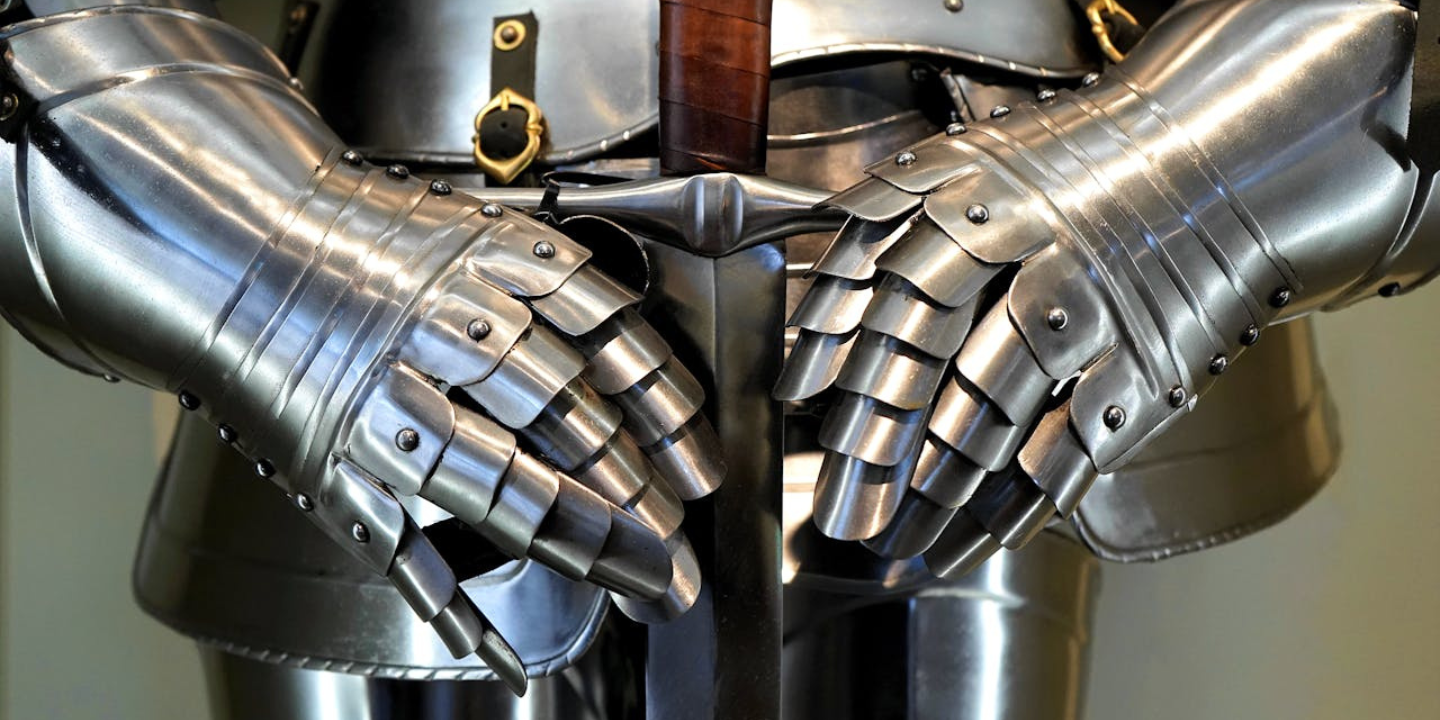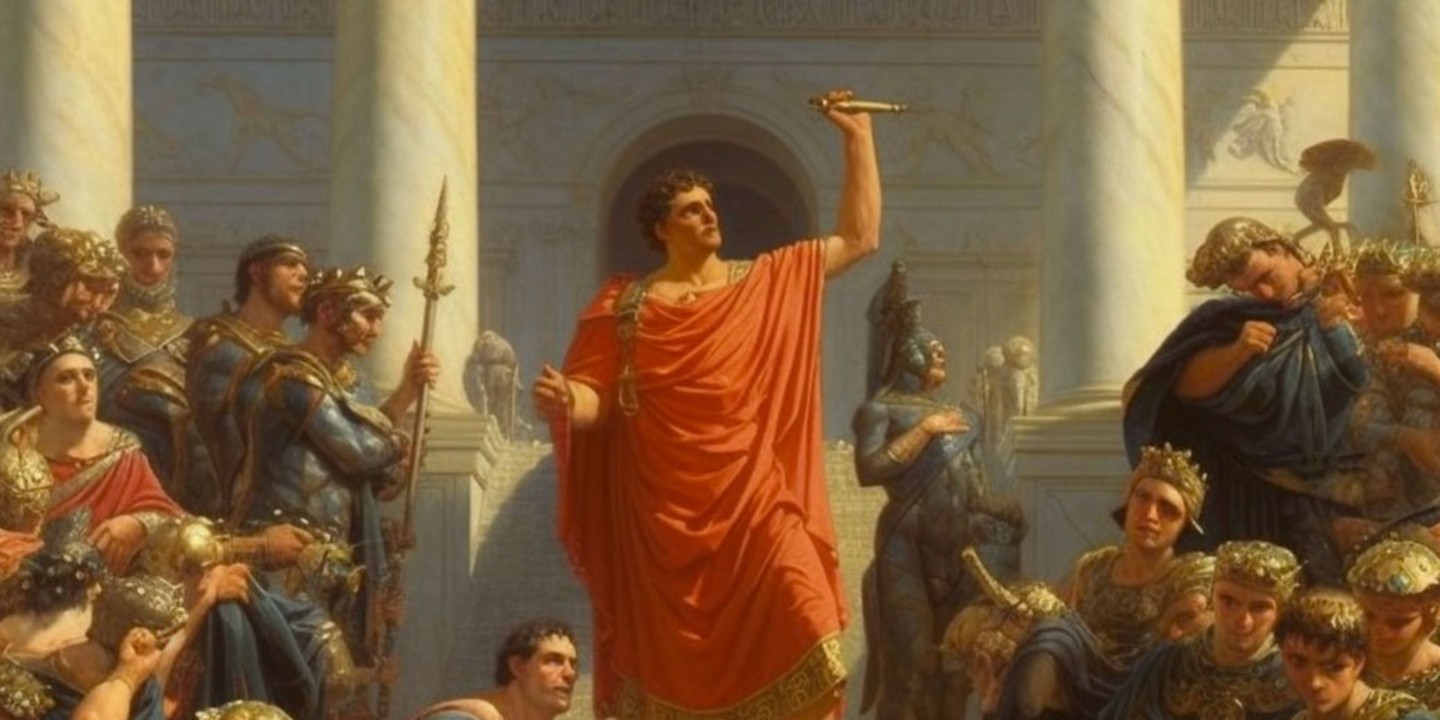The Louisiana Purchase Really Worked Out
Throughout history, U.S. presidents have had to make risky moves to avoid wars, expand their land and interests, or protect their citizens. Even Lincoln's Emancipation Proclamation was considered to be a giant risk at the time. Here are 20 risky moves by U.S. presidents that paid off.
1. Neutrality Proclamation
George Washington declared neutrality during the French Revolutionary Wars, refusing to back either France or Britain. This angered both nations, and critics accused him of turning his back on the U.S.'s greatest ally, France. History proved Washington to be astute, as neutrality preserved American independence and kept them out of a devastating war.
2. Louisiana Purchase
Thomas Jefferson almost doubled U.S. territory by purchasing Louisiana from France for $15 million. This move was risky, as many argued that it overstepped constitutional powers, and the vast land would be lawless and impossible to govern. It paid off and became one of the greatest real estate deals in history.
3. War of 1812
James Madison declared war on Britain despite only having a small navy and an unproven army. Yet, the war ended in a stalemate, which was a victory for Madison and U.S. forces. This war was a boon for national pride.
 Unknown artistUnknown artist on Wikimedia
Unknown artistUnknown artist on Wikimedia
4. Monroe Doctrine
James Monroe declared that the Americas were off-limits to European colonization, even without having the military strength to back it up. Many critics called it an empty threat, but it gained support from Britain's Royal Navy and eventually became a pillar of U.S. foreign policy.
 After Clyde O. DeLand on Wikimedia
After Clyde O. DeLand on Wikimedia
5. Bank Veto
Andrew Jackson vetoed the recharter of the Second Bank of the United States because he believed it was a corrupt institution that looked down on the average citizen. His detractors warned that it would wreck U.S. credit and trigger economic chaos. However, it paid off politically as Jackson was re-elected and was seen as a friend to the "common man".
 Mathew Benjamin Brady on Wikimedia
Mathew Benjamin Brady on Wikimedia
6. Emancipation Proclamation
Abraham Lincoln's Emancipation Proclamation during the Civil War turned the tide of U.S. history. He declared that enslaved people in Confederate territory were free. Many believed it would backfire militarily and fracture support. What it did was reframe the war as a moral battle, and deterred European nations from helping the Confederacy.
 Library of Congress on Unsplash
Library of Congress on Unsplash
7. Civil Rights Enforcement
Ulysses S. Grant enforced Reconstruction policies, using federal troops to combat the Ku Klux Klan. His critics anticipated a fierce backlash from Southern voters, but his actions helped dismantle violent paramilitary groups.
 Library of Congress on Unsplash
Library of Congress on Unsplash
8. Panama Canal Gamble
Theodore Roosevelt backed Panama's move toward independence from Colombia to secure the rights to construct the Panama Canal. This is a risky diplomatic move, seen as meddling in Latin American affairs. The reward was enormous, as the canal revolutionized global trade and gave the U.S. strategic naval positioning.
 Pach Brothers (photography studio) on Wikimedia
Pach Brothers (photography studio) on Wikimedia
9. Trust-Busting
William Howard Taft surprised even his closest allies when he began filing more antitrust lawsuits than Roosevelt. He was aggressively challenging corporate monopolies. His risk could have alienated wealthy industrialists, but, instead, he strengthened federal regulation of corporations and set precedents for antitrust enforcement.
 Ernest J. Bellocq on Wikimedia
Ernest J. Bellocq on Wikimedia
10. Entering World War I
Woodrow Wilson campaigned on the principle of keeping America out of the war, but reversed course in 1917. He brought the country into World War I, which was deeply unpopular, but his decision tipped the scales in favor of the Allies and ensured victory.
11. Return to Normalcy
On the heels of WWI, Warren Harding promised a "return to normalcy". He prioritized isolationism and domestic business growth. This could have squandered the country's global influence, but it resonated with Americans and led to economic prosperity in the 1920s.
12. Hands-Off Economics
Clavin Coolidge surprisingly took a risk by doing very little, emphasizing that "the business of America is business". He slashed regulations and taxes and opted for minimal government interference. His opponents warned that this could cause a devastating economic spiral, but the country saw unprecedented financial growth.
 Notman Studio, Boston. Restoration by User:Adam Cuerden on Wikimedia
Notman Studio, Boston. Restoration by User:Adam Cuerden on Wikimedia
13. The New Deal
Franklin D. Roosevelt launched the New Deal, which involved a sweeping federal program to regulate the economy, and it was an enormous gamble. Critics called it socialism, and business magnates feared it would tank the economy. In the end, the New Deal restored public confidence and provided relief to millions.
14. Desegregating the Military
Harry Truman ended segregation in the U.S. military. It was a huge political risk with the chance of alienating Southern democrats whose support he needed. However, integrating the armed forces solidified his political power and reputation for moral courage and helped usher in the civil rights movement.
 Library of Congress on Unsplash
Library of Congress on Unsplash
15. Interstate Highway Act
Dwight Eisenhower proposed the Interstate Highway System, which was the largest public works project in the country's history. It cost $25 million at the time, and many feared it would kill the federal budget. Eisenhower's belief that it was key for commerce and defense was accurate, and it transformed American life.
 Library of Congress on Unsplash
Library of Congress on Unsplash
16. Cuban Missile Crisis
John F. Kennedy faced the prospect of nuclear war when the Soviet Union placed missiles in Cuba. Instead of invading Cuba, he imposed a naval blockade that could have destroyed his reputation. The risky move could have backfired if Khrushev didn't back down. JFK's restraint and diplomacy led to the Soviets removing missiles in exchange for U.S. concessions.
17. Civil Rights Act
Lyndon Johnson propelled the Civil Rights Act through Congress despite enormous resistance from Southern Democrats. He risked fracturing his party, but it was a calculated risk as the reward of securing civil rights was immense, morally and socially. His risk transformed U.S. History and was a monumental achievement.
 Library of Congress on Unsplash
Library of Congress on Unsplash
18. Opening China
Richard Nixon took a few risks during his presidency, and some blew up in his face. One that paid off was when Nixon visited China in 1972 to open diplomatic and trade relations.
 Library of Congress on Unsplash
Library of Congress on Unsplash
19. Camp David Accords
Jimmy Carter negotiated a peace treaty between Egypt and Israel, when many thought it was a risk that would never pay off. His efforts led to decades of peace for the two nations.
20. Berlin Wall Rhetoric
Ronald Reagan's famous words to Gorbachev could have antagonized the Soviets during heightened tensions of the Cold War. Instead, it galvanized global opinion and was a pivotal step toward the Berlin Wall being torn down in 1989.
KEEP ON READING

20 Common Misconceptions People Have About The Middle Ages
It’s Not All Knights and Shining Armor. Many people romanticize…
By Farva Ivkovic Nov 4, 2024
20 Powerful Ancient Egyptian Gods That Were Worshipped
Unique Religious Figures in Ancient Egypt. While most people are…
By Cathy Liu Nov 27, 2024
The 10 Scariest Dinosaurs From The Mesozoic Era & The…
The Largest Creatures To Roam The Earth. It can be…
By Cathy Liu Nov 28, 2024
The 20 Most Stunning Ancient Greek Landmarks
Ancient Greek Sites To Witness With Your Own Eyes. For…
By Cathy Liu Dec 2, 2024
10 Historical Villains Who Weren't THAT Bad
Sometimes people end up getting a worse reputation than they…
By Robbie Woods Dec 3, 2024
One Tiny Mistake Exposed A $3 Billion Heist
While still in college, Jimmy Zhong discovered a loophole that…
By Robbie Woods Dec 3, 2024









